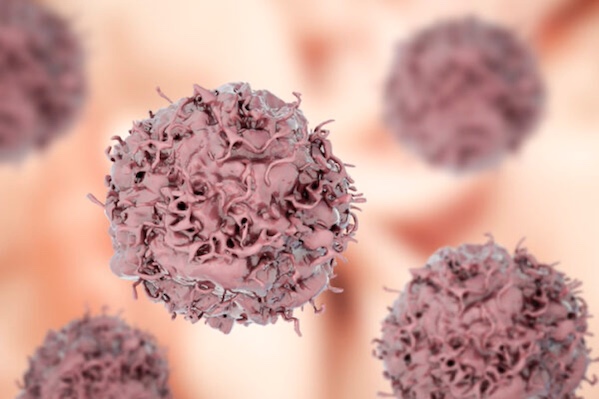GSK Expands Again in Cancer, Paying Hansoh $185M for Another ADC
December 22, 2023
Source: drugdu
 368
368
GSK gains rights to a Hansoh Pharma antibody drug conjugate that targets a protein abundant on lung cancer cells and other types of solid tumors. The pharmaceutical giant plans to start its own slate of clinical trials with this ADC in 2024.
By FRANK VINLUAN
 GSK’s cancer drug pipeline is getting bigger with the addition of another antibody drug conjugate, or ADC. It’s the second time in as many months that GSK has turned to Hansoh Pharma for one of the China-based biotech’s drugs.
GSK’s cancer drug pipeline is getting bigger with the addition of another antibody drug conjugate, or ADC. It’s the second time in as many months that GSK has turned to Hansoh Pharma for one of the China-based biotech’s drugs.
Per deal terms announced Wednesday, GSK is paying $185 million up front for rights to HS-20093, a Hansoh ADC that has been tested in lung cancer. GSK gains global rights to the drug candidate excluding mainland China, Hong Kong, Macau, and Taiwan.
ADCs are made by chemically linking an antibody to a toxic drug payload. The targeting ability of the antibody is meant to provide a direct strike to cancer cells that spares healthy cells. Hansoh’s HS-20093 targets B7-H3, a protein expressed by many different cancers. The drug’s payload is type of chemotherapy called a topoisomerase inhibitor.
Under Hansoh, HS-20093 has reached Phase 1 and Phase 2 testing China in various types of solid tumors. In explaining its rationale for selecting this ADC, GSK singled out data from a Phase study in solid tumors that showed early signs of clinical activity in small cell lung cancer and sarcoma. In addition to multiple confirmed responses to the therapy, these results also showed the drug had a manageable safety profile. Data were presented last June during the annual meeting of the American Society of Clinical Oncology.
GSK plans to begin its own slate of Phase 1 clinical trials for HS-20093 outside of China in 2024. Depending on GSK’s progress with HS-20093, Hansoh could receive up to $1.5 billion in milestone payments. If this ADC reaches the market, the deal calls for GSK to pay Hansoh royalties from the product’s sales.
“B7-H3 is highly expressed in a broad range of solid tumors where there remains a significant need for novel treatment options,” Hesham Abdullah, GSK senior vice president and global head oncology, R&D, said in a prepared statement. “We look forward to progressing this potential new treatment across several indications and in future potential combination approaches with our established portfolio.”
That portfolio includes HS-20089, a Hansoh ADC that GSK licensed in October. This ADC targets B7-H4, a protein abundant in ovarian and endometrial cancers. GSK paid $85 million up front for HS-20089, gaining global rights except for China, Hong Kong, Macau, and Taiwan. Hansoh could receive up to $1.48 billion in milestone payments for this ADC.
GSK is part of a growing group of companies that have looked to Asia to land one or more ADCs. AstraZeneca owes its ADC progress to its partnership with Japanese drugmaker Daiichi Sankyo. That alliance has commercialized Enhertu, which has regulatory approvals in breast cancer, gastric cancer, and lung cancer.
In October, Merck inked its own agreement with Daiichi Sankyo, paying $4 billion up front to partner on the development of three other ADCs. BioNTech is in the ADC hunt through a partnership with MediLink, based in Suzhou, China, as well a separate alliance with Shanghai-based DualityBio. In November, Bristol Myers Squibb began a partnership on next-generation ADCs with Orum Therapeutics, a biotech that splits its operations between Massachusetts and South Korea.
U.S.-based ADC biotechs are also drawing interest from big pharma companies. Last month, AbbVie struck a $10.1 billion deal to acquire ImmunoGen, which has commercialized the ADC Elahere for ovarian cancer. And last week, Pfizer closed its $43 billion acquisition of ADC specialist Seagen.
Image: Getty Images
Read more on
- Eli Lilly wins another victory! Regcizosumab submits its marketing application in China March 5, 2026
- Henlius’s potential best-in-class small molecule drug receives its first clinical trial approval March 5, 2026
- New anti-aging drug approved for clinical trials March 5, 2026
- First in the world and first in China, Yahong Pharmaceutical’s non-invasive treatment for cervical precancerous lesions, Cervita, has been approved March 5, 2026
- Its investee company’s PA3-17 injection has received clinical approval for a new indication, expanding the applicable population to children and adolescents March 5, 2026
your submission has already been received.
OK
Subscribe
Please enter a valid Email address!
Submit
The most relevant industry news & insight will be sent to you every two weeks.



